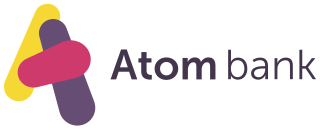Real-time gross settlement (RTGS) systems are specialist funds transfer systems where the transfer of money or securities takes place from one bank to any other bank on a "real-time" and on a "gross" basis. Settlement in "real time" means a payment transaction is not subjected to any waiting period, with transactions being settled as soon as they are processed. "Gross settlement" means the transaction is settled on a one-to-one basis, without bundling or netting with any other transaction. "Settlement" means that once processed, payments are final and irrevocable.

Bacs Payment Schemes Limited (Bacs), previously known as Bankers' Automated Clearing System, is the organisation with responsibility for the schemes behind the clearing and settlement of UK automated payment methods Direct Debit and Bacs Direct Credit, as well as the provision of managed services for third parties. Bacs became a subsidiary of Pay.UK on 1 May 2018, and as a result of this, overall responsibility for the operations of Direct Debit, Bacs Direct Credit, the Current Account Switch Service, Cash ISA Transfer Service and the Industry Sort Code Directory was handed over to Pay.UK.
The UK Payments Administration Ltd (UKPA) is a United Kingdom service company that provides people, facilities and expertise to the UK payments industry.
The Clearing House Automated Payment System (CHAPS) is real-time gross settlement payment system used for sterling transactions in the United Kingdom.
A Direct Debit or direct withdrawal is a financial transaction in which one person withdraws funds from another person's bank account. Formally, the person who directly draws the funds instructs his or her bank to collect an amount directly from another's bank account designated by the payer and pay those funds into a bank account designated by the payee. Before the payer's banker will allow the transaction to take place, the payer must have advised the bank that he or she has authorized the payee to directly draw the funds. It is also called pre-authorized debit (PAD) or pre-authorized payment (PAP). After the authorities are set up, the direct debit transactions are usually processed electronically.
Sort codes are the domestic bank codes used to route money transfers between financial institutions in the United Kingdom, and historically in the Republic of Ireland. They are six-digit hierarchical numerical addresses that specify clearing banks, clearing systems, regions, large financial institutions, groups of financial institutions and ultimately resolve to individual branches. In the UK they continue to be used to route transactions domestically within clearance organisations and to identify accounts, while in the Republic of Ireland they have been deprecated and replaced by the SEPA systems and infrastructure.
The Clearing House Interbank Payments System (CHIPS) is a United States private clearing house for large-value transactions. By 2015, it was settling well over US$1.5 trillion a day in around 250,000 interbank payments in cross border and domestic transactions. Together with the Fedwire Funds Service, CHIPS forms the primary U.S. network for large-value domestic and international USD payments where it has a market share of around 96%. CHIPS transfers are governed by Article 4A of Uniform Commercial Code.

The Cheque and Credit Clearing Company Limited (C&CCC) is a UK membership-based industry body whose 11 members are the UK clearing banks. The company has managed the cheque clearing system in England and Wales since 1985, in all of Great Britain since 1996 when it took over responsibility for managing the Scottish cheque clearing as well, and in the whole of the United Kingdom since the introduction of the Image Clearing System in 2019.
LINK is a shared interbank network of cash machines operating in the United Kingdom.
ToDDaSO was an electronic payments service in the UK for the transfer of retail customer payment arrangements between different bank accounts in UK banks. ToDDaSO is an acronym that stands for Transfer of Direct Debits and Standing Orders.

The Payments Council was an organisation of financial institutions in the United Kingdom, which set strategy for UK payment mechanisms from 2007 until 2015.
The Industry Sorting Code Directory (ISCD) is the definitive list of bank branches and sub branches in the United Kingdom. The directory is maintained by VocaLink on behalf of UK Payments Administration.
Direct Corporate Access (DCA) is part of the Faster Payments Service which provides a same day clearing payment service to UK member banks. Direct Corporate Access (DCA) will provide Banks' business customers with direct access to the Faster Payments Service (FPS) clearing service in a very similar way that Bacstel-IP provides access to BACS.
Santander UK plc is a British bank, wholly owned by the Spanish Santander Group. Santander UK plc manages its affairs autonomously, with its own local management team, responsible solely for its performance.

The Financial Conduct Authority (FCA) is a financial regulatory body in the United Kingdom, but operates independently of the UK Government, and is financed by charging fees to members of the financial services industry. The FCA regulates financial firms providing services to consumers and maintains the integrity of the financial markets in the United Kingdom.
Vocalink is a payment systems company headquartered in the United Kingdom, created in 2007 from the merger between Voca and LINK. It designs, builds and operates the UK payments infrastructure, which underpins the provision of the Bacs payment system and the UK ATM LINK switching platform covering 65,000 ATMs and the UK Faster Payments systems.
EBA Clearing is a provider of pan-European payment infrastructure wholly owned by shareholders that consist of major European banks.

Atom Bank plc is based in Durham, North East England. Atom Bank is the UK's first bank built for smartphone or tablet, without any branches. In turn, this means that Atom are able to pass on the benefits of their low-cost model in respect of a better deal for their customers, and was the first digital only challenger bank to be granted a full UK regulatory licence.

Faster Payment System is a real-time gross settlement payment system in Hong Kong that connects traditional banks and electronic payment and digital wallet operators. Users are able to perform instant money transfer or make payment to merchants by using the recipient's phone number, e-mail or QR code that contains the user's numeric identifier. Using the "traditional way" of full name and account number to make interbank transfer is also allowed.
An automated clearing house (ACH) is a computer-based electronic network for processing transactions, usually domestic low value payments, between participating financial institutions. It may support both credit transfers and direct debits. The ACH system is designed to process batches of payments containing numerous transactions and charges fees low enough to encourage its use for low value payments.






